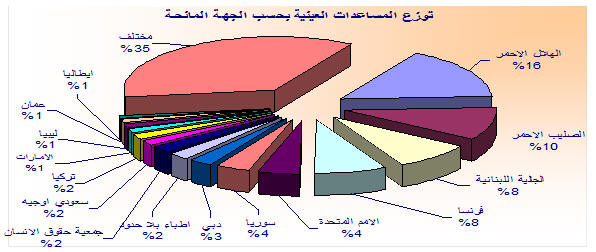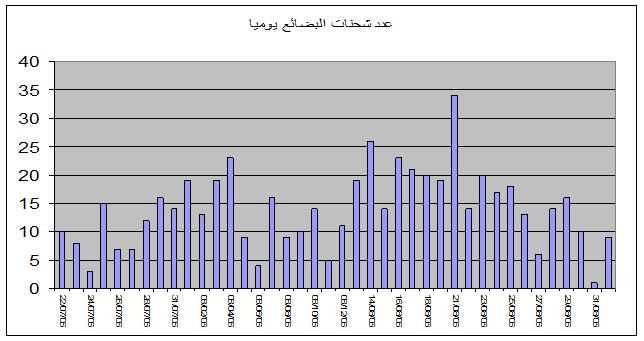|
|
The distribution of aid according to countries
and donor institutions:
The sources of aid provided to Lebanon varied,
and some countries and international
organization, non-governmental organizations,
humanitarian associations, Lebanese communities,
and other trade companies also contributed in
the aid.
The largest contribution was by the Red
Crescent, especially in the Gulf countries, for
the number of shipments sent from those
countries were about 88 shipments, merely
representing 16% of the total in-kind aid. In
addition to that, the Lebanese communities in
Diaspora sent around 47 shipments, i.e. 8% of
the shipments imported into Lebanon, and this
corresponds to the total amount of aid sent by
France, which ranked the first among the aid
sent to help Lebanon. As for the United Nations,
the aid sent by it represented 4% of the total
aid.
Most of the Arab aid entered Lebanon through
land crossings, while international aid came
through harbors. The Port of Tyr witnessed an
increasing activity, for most of the aid (4% of
the shipments) was transported to this port, due
to the difficulty of transportation in the
southern regions.
Distribution of aid according to time periods

Source: Ministry
of Finance
The in-kind aid
continued to flow to Lebanon during the war, and
its peak was between August 14 2006 and August
21 2006, where the border crossings were crowded
with ships around the hour, and meanwhile
several ships arrived in the Beirut, Tripoli,
and Saida ports.
The peak of food and relief shipment arrival was
August 21, 2006, where the number of shipments
that entered Lebanon was 34 shipments in that
day, according to the statistics by the
Directorate of Customs.
Number of daily shipped goods
 |